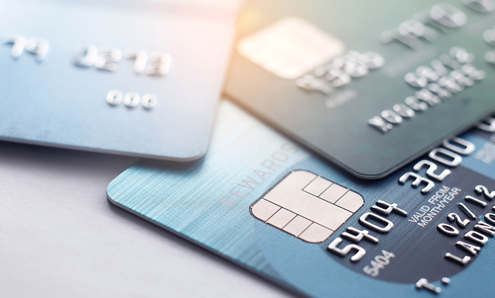In the fast-paced world of business, your company needs to be able to make quick, efficient and high-value payments as swiftly as possible. This is where the CHAPS transfer method steps in, offering a robust solution for those critical, larger-sum transactions.
But what exactly is a CHAPS transfer, and is this payment option something that all businesses should consider using? We’ll deep dive into everything you need to know about CHAPS payments.
What does CHAPS stand for?
CHAPS — also known as the Clearing House Automated Payment System — is a type of bank transaction.
The CHAPS system was established in London in 1984 as an alternative to providing a faster and more efficient means of transferring large sums of money compared to the slower, paper-based Bankers Automated Clearing System (Bacs).
The Bank of England (BoE) has been responsible for the CHAPS system since 2017, so all transfers must be made in pounds sterling.
What is a CHAPS payment?
A CHAPS payment is like a regular bank transfer — where the funds are moved between two accounts — however, it deals with more high-value payments, and there's no limit to the amount of money you can transfer. CHAPS guarantee same-day payment as long as the instructions are received by a specific time in the working day. Your bank determines the time, and there’s also no limit on the amount of money that can be transferred via CHAPS.
According to the Bank of England, in the first six months of 2023, the average daily value for CHAPS payments was £382 billion, an increase of 1.0% from January - June 2022.
What’s the difference between Bacs, Faster Payments and CHAPS?
On occasion, Bacs, Faster Payments and CHAPS can all be confused with one another. Essentially, they’re all forms of bank transfers, but there are some key differences between them.
- Bacs — A Bacs payment is one of the UK's most common bank-to-bank transfer payments. There are two main types of Bacs payments:
-
- Direct Debit — Where one party has been given permission to pull money from another party's bank account.
- Direct Credit — Where a party deposits money into another party's account.
There’s no charge to use Bacs payments; however, you’ll need to allow time — usually up to three working days — for a payment to clear.
- Faster Payments — A Faster Payment is a type of electronic transfer that was designed to speed up the process of sending money within the UK. These payments can be made online, over the phone or in bank branches and, as of February 2022, pay.uk — the company in charge of Faster Payments — offers real-time payments of up to £1m.
What are the benefits of using CHAPS transfers?
CHAPS transfers can offer a wide range of benefits for businesses, including:
Speed and efficiency — CHAPS transfers are recognised for their quick processing times. Transactions are typically completed within the same business day, and this speedy turnaround is crucial for businesses where delays can be costly. For instance, in situations like closing a deal, meeting a tight deadline for payment, or resolving urgent financial obligations, the efficiency of CHAPS is a significant advantage.
Direct payment methods — CHAPS payments are direct bank-to-bank transfers. This approach reduces the complexity and potential delays around normal bank transfers that deal with larger sums of money. The elimination of middlemen not only speeds up the transaction but also reduces the potential points of failure or error in the payment chain. For businesses, direct transfers mean a straightforward and transparent payment method and process, which is easier to manage and track.
Traceability — Payments made through CHAPs are easily traceable since each transaction is recorded in detail, providing a clear audit trail. This traceability is important for maintaining accurate financial records and for compliance purposes. It also allows businesses to verify transactions and reconcile their accounts easily.
What are the disadvantages of using CHAPS transfers?
Although CHAPS transfers do come with a wide range of benefits, there are some disadvantages to using this method of payment:
It can be costly — CHAPS transfers are generally more expensive than other methods like BACS or Faster Payments. The fees can vary depending on the bank but are typically higher due to the speed and security of the service.
Cut-off times — For a CHAPS payment to be processed on the same day, it must be initiated before a certain cut-off time. This time varies between banks but is usually in the early afternoon. If the payment instruction is given after this cut-off time, the transaction will be delayed until the next working day, which can be problematic for urgent payments.
No reversibility — Once a CHAPS payment has been made, it can’t be reversed. This means that if there is an error in the payment details, such as an incorrect account number, the funds cannot be easily retrieved.
How much is the fee to send a CHAPS payment?
CHAPS payments involve various fees both for banks and end users.
Bank Fees — Banks and financial institutions that take part in CHAPS will be charged various fees, such as an annual participant fee and a cost per item, according to the Bank of England. This is so the BoE can recoup the costs of providing Real-Time Gross Settlement (RTGS) and acting as the payment system operator.
End user fees — Users who send transactions will have to pay a transaction fee set by their bank. Currently, most banks charge users between £20 and £35 per CHAPS transaction, but it’s best to check with your bank on how much each transaction will cost.
How much does it cost to send a CHAPS payment per bank?
It’s important to remember that each bank is different, so the cost will vary. Here are some of the average fees for the banks you’ll see on the UK high street (as of November 2023):
HSBC — HSBC comes out on the lower end of the scale, with it costing £17 to send money to a non-HSBC Group account and £12 (as an HSBC Premier Member) to send a CHAPS payment to an HSBC, first direct or M&S Bank account.
Santander — There’s a £25 charge to make a CHAPs payment to any account with Santander. The cut-off time for same-day payments is 1 PM for telephone banking and 4:30 PM in branch.
Barclays — If you’re a Barclays Business Banking Customer, there’s a £15 fee for every transaction made via online banking and a £25 fee over the phone and in branch.
Lloyds Bank — To make a CHAPS payment, you’ll need to visit a Lloyds Bank branch, and each payment has a fee of £25.
Royal Bank of Scotland — It costs £20 per CHAPS transaction, with these having to be made through a branch for the RBS.
NatWest — If you’re a business banking customer with NatWest, you can expect a fee of £20 per CHAPS payment on Bankline.
Virgin Money — Virgin Money charges £25 per transaction for sending CHAPS payments. These can be made at any store before 4 PM.
Can CHAPS payments be used for international transfers?
No, CHAPS payments cannot be used for international transactions as the main characteristic of CHAPS is that it is only used for sterling payments in the UK.
However, since CHAPS is used by multinational banks, you can send payments to the same bank in sterling.
Is there a limit on CHAPS payments?
As a business, you’ll more than likely be sending high-value and time-sensitive payments, such as to suppliers or for tax payments, regularly. With CHAPS transfers, there’s no minimum or maximum spend, essentially meaning there’s no limit to the amount of money that you can send in any one transaction.
Get in touch with takepayments today
CHAPS payments can be extremely convenient for businesses that need to send high-value funds swiftly. And no matter how your business operates, if you run a brick-and-mortar store, you’re going to need a card machine that can hold up. Whether you decide to opt for portable, countertop or mobile devices, our card machines for small businesses can help make payments more manageable.
To find out more about any of our payment solutions or discuss your options in more detail, contact our dedicated experts today! Or, check out our blog to learn more about takepayments' technology.




